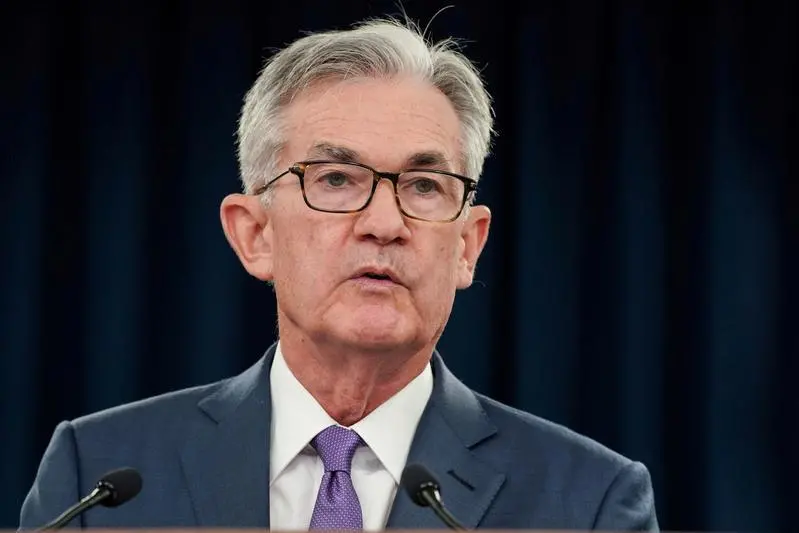PHOTO
SAN FRANCISCO - Jay Powell has offered up a central banker’s version of the serenity prayer. The U.S. Federal Reserve chief laid out his agenda at the annual Jackson Hole monetary-policy conference on Friday, indicating that he hopes to control what he can and rise above what he can’t. But he also seems more willing to accept that things he cannot change may still justify taking action.
Powell singled out tariff battles as a new challenge for rate-setters, and was straightforward about the Fed’s limited power to do anything about them. He said there’s no recent precedent to guide the central bank in times of trade war. While the central bank can use interest rates and other tools to spur consumer spending and business investment, it can’t set global commerce rules.
China had proved him correct just hours earlier. Before Powell’s speech, the People’s Republic said it would impose levies on $75 billion in American goods, including on autos and auto parts, a response to U.S. plans to put tariffs on $300 billion in Chinese goods. President Donald Trump responded by ordering American companies to start looking for “an alternative to China.” In theory these shouldn’t affect today’s monetary policy – but they’re hard for Powell to ignore.
The subtext of Powell’s speech is that running the Fed is an unenviable job under an unpredictable president. Trump is likely to become even more so as he fights for a second term in 2020’s elections, which may cause lasting damage to the economy that monetary policy can’t prevent or fix with its traditional, somewhat blunt tools. Moreover, Powell is himself under attack. Trump publicly mused on Friday whether China’s president or the Fed chief was the bigger U.S. enemy.
Amid all that, Powell’s response looks sensible. He effectively said that while the central bank can’t control tariffs, it can try to judge the difference between empty threats and trade policy that might harm the economy, even if it doesn’t yet show up in the economic data. The probability that the Fed will lower rates by a quarter-point in September ticked up slightly, according to CME’s FedWatch tool. That may be less because the president wants it, and more because Powell is signalling that foolish trade wars may necessitate it.
CONTEXT NEWS
- U.S. Federal Reserve Chairman Jerome Powell said on Aug. 23 that fitting trade policy uncertainty into the central bank’s economic assessments is a new challenge.
- In a speech at the annual Jackson Hole monetary conference, Powell added that there is no recent precedent to guide the Fed, and noted that while monetary policy can spur consumer spending and business investment, it doesn’t have influence over global trade rules.
- “We can, however, try to look through what may be passing events, focus on how trade developments are affecting the outlook, and adjust policy to promote our objectives,” he said.
- Separately on Aug. 23, China said it was imposing an up to 10% tariff on about $75 billion worth of U.S. goods. The United States had previously said it would impose a 10% levy on about $300 billion worth of Chinese imports in September and December.
- In response, U.S. President Donald Trump tweeted that he was ordering American companies to find an alternative to China. He also asked whether the “bigger enemy” was Chinese President Xi Jinping or Powell, who he has repeatedly pressured to cut rates.
(Editing by John Foley and Amanda Gomez)
© Reuters News 2019





















